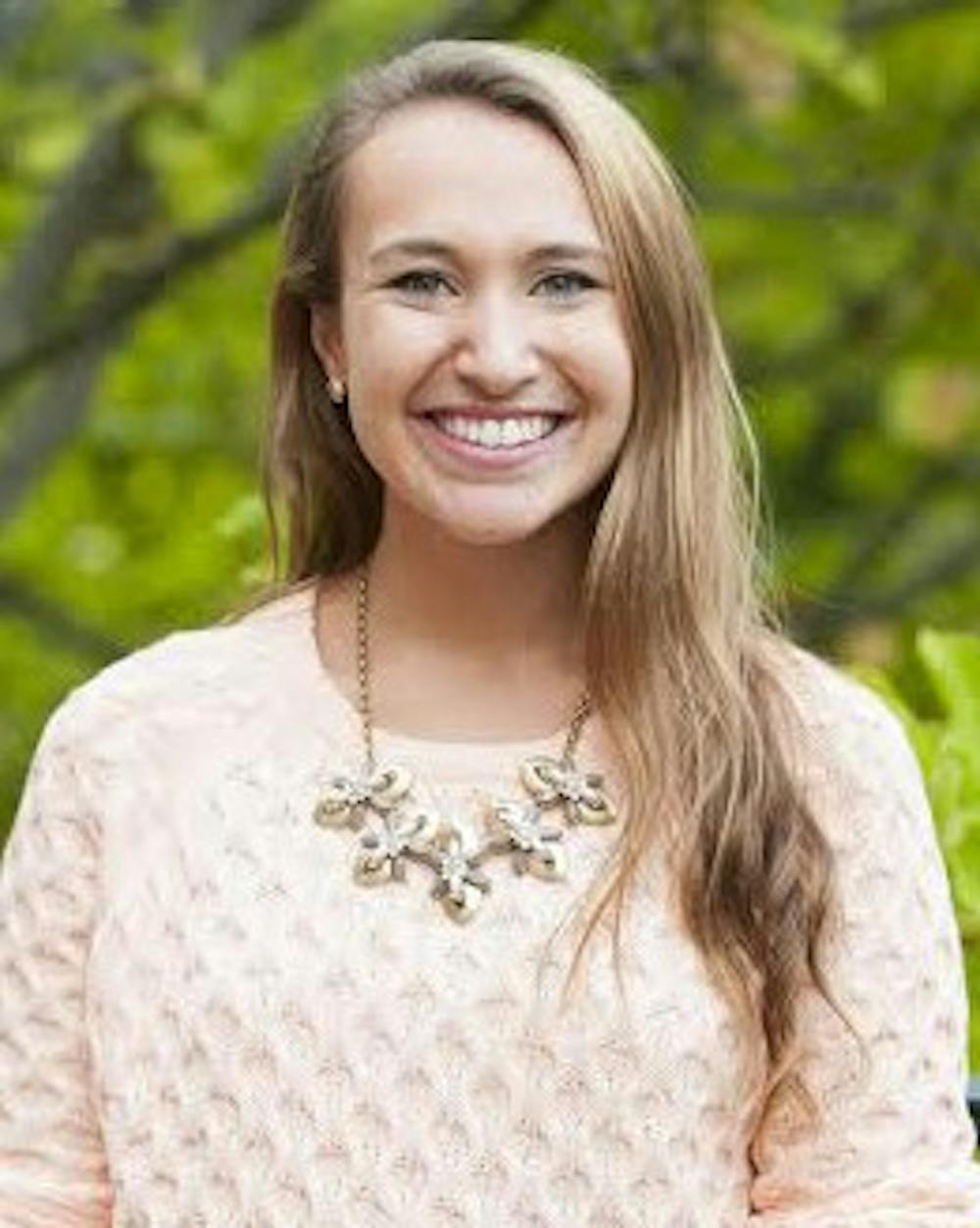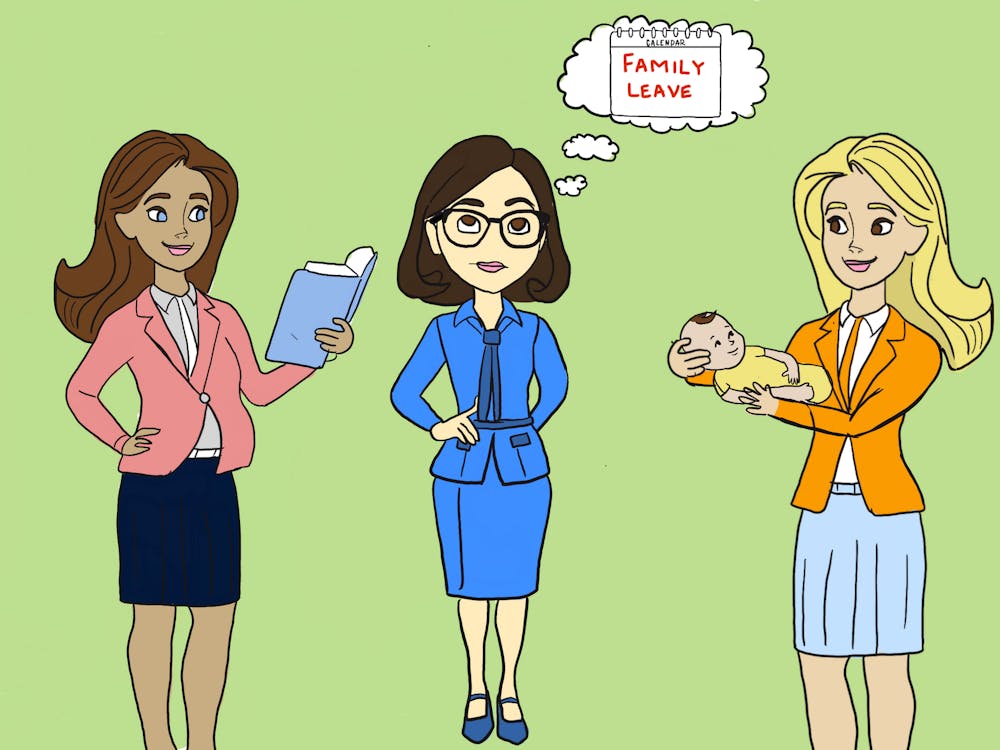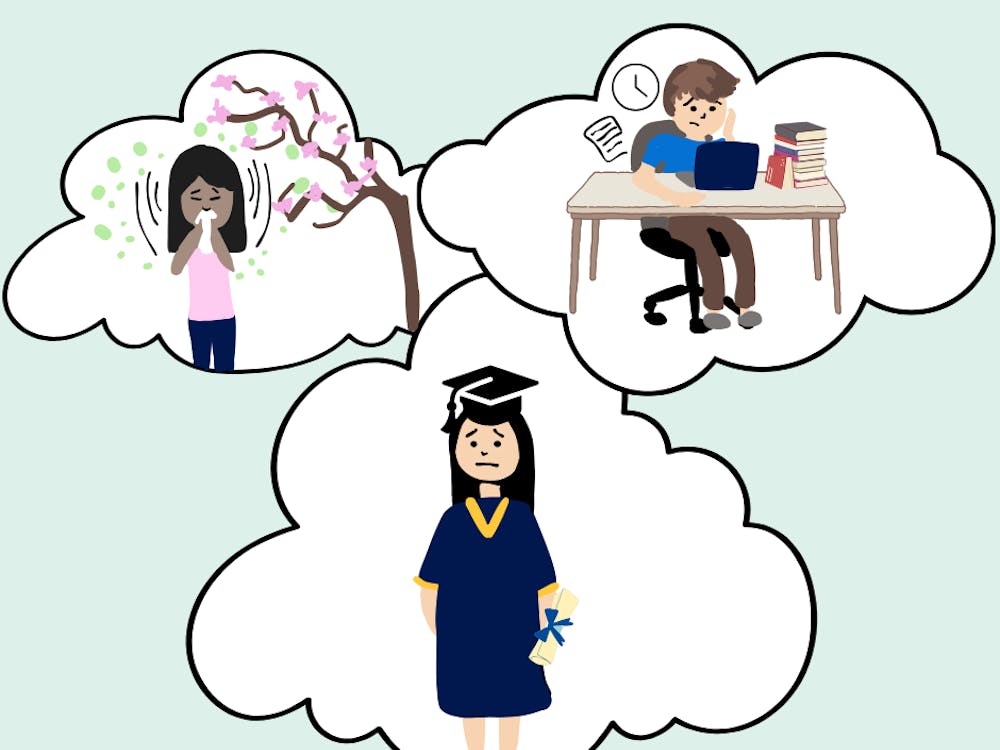It’s hard to pinpoint exactly when I began to singlehandedly dismantle my own self-confidence. In the fall semester, I fell into a debilitating routine of insecurity and systematic self-doubt — triggered by no single event, I somehow convinced myself I was failing as a student, friend, writer and person.
To my knowledge, no one really talks about how transitioning into your second year at the University can be hard. In my case, I found I wasn’t immediately overcome with the glorious and elusive feeling of “finally knowing what you’re doing” that older friends had implied I would. Aspects of the University which had previously excited me became underwhelming, and I found the only substantial difference between my first and second years was how painfully aware I became of my own fear of the future.
I guess I expected to have some grandiose epiphany the moment I arrived back in Charlottesville for my second year — older and wiser, I was supposed to have my life planned out at that point. When that simply didn’t happen, I got scared. I convinced myself I should be worried and experienced needless, intense anxiety every time someone alluded to choosing a major or finding work upon graduation.
In short, I was overcome with the all-too common misconception that everyone had it together except for me.
I reached a point where even the most mundane tasks filled me with anxiety. Over winter break, I did everything in my power to avoid reworking my spring class schedule for as long as possible. Not because of how tedious it would be, but because logging onto SIS would mean admitting I didn’t have a concrete course of action for my studies and thus didn’t have the meticulously organized life plan I was convinced everyone around me did.
This anxiety had been fermenting for the entire fall semester, and began to take its toll on even trivial social interactions — it was a form of insecurity that was nothing short of crippling.
In hindsight, I feel a sense of loss at the relationships I could have cultivated last semester had I not been so shut within myself. Surely, I lost many an opportunity for friendship due to my self-inflicted inferiority complex — I didn’t like who I was and couldn’t bear to let myself think anyone else would. I remained stagnant in relationships which could have flourished. I effectively isolated myself.
Strangely enough, my circumstances brightened in very much the same way they had initially become difficult: without any definitive impetus. I must have realized at some point if I didn’t have a substantial reason for feeling as low as I did, I had effectively chosen to feel that way — I was a victim of my own negativity. And, I thought, if the attitude I choose to have has such a clear impact on the person I become, I may as well make up my mind to be happy.
Breaking out of my semester-long cycle of negativity really was as simple as deciding I deserved better. In making the conscious decision to be happy, I effectively re-conceptualized myself. I began to approach any and all situations as a new and improved version of me, and my new outlook has made all the difference.
Following what was admittedly an emotionally tumultuous time for most all University students, I have resolved to see brighter days this semester. Equipped with my newfound self-awareness, I feel prepared to have an immensely positive spring semester — mostly because I realized having brighter days begins and ends with no one but me.
Victoria’s column runs biweekly Tuesdays. She can be reached at v.moran@cavalierdaily.com.







